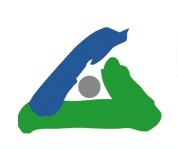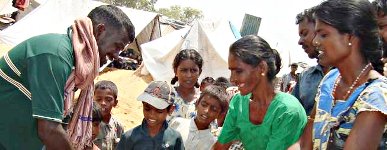National Consultations in India
Budi Tjahjono, FI’s Advocacy Officer for Asia-Pacific, travelled to India in November to participate in two national consultations, one focusing on the right to food and extreme poverty, the other on the human rights of minority groups like the Dalit and the Adivasi.
For some, the UPR cycle ends once a state adopts certain recommendations. For us at Franciscans International, however, the adoption of recommendations is really only a beginning. For the next four and a half years, the recommendations must be implemented and monitored nationally. It is a big part of FI’s strategy to be involved in this national follow-up process on the ground. In this context, Budi Tjahjono, FI’s Advocacy Officer for Asia-Pacific, travelled to India in November to participate in two national consultations, one focusing on the right to food and extreme poverty, the other on the human rights of minority groups like the Dalit and the Adivasi.
In partnership with local NGOs, faith-based networks and the Association of Franciscans Families in India (AFFI), FI organised two national consultations that address issues of injustice in India such as access to food for the most marginalised (in Bangalore) and the human rights of the minority group in India (in Bhubaneswar). FI reassured minority groups represented that their concerns and needs are taken into account at international level, which encouraged their advocacy work. FI was also able to share its expertise on how best to leverage the UPR and other international mechanisms to bring the concerns of the grassroots to a much wider national and international audience.
The meetings provided an opportunity for the faith-based network on the Right to Food to evaluate their campaign and develop an action plan for the upcoming years,. In addition to participating in these planning sessions, Budi was also able to inform and train actors on the ground about the UPR mechanism and how to best prepare for India’s next review in 2017. In Bhubaneswar, FI further developed relationships with NGOs working with minority groups in Odisha State, and learned about some of the violations against freedom of religion and belief that are still perpetrated there, in particular the continued violence against and mistreatment of Dalits, especially Christian Dalits, who are still classified as “Other Backward Castes.” This classification continues to exclude them from most affirmative measures (such as the Right to Food Act, passed in 2013) undertaken by the Government .
New contacts with networks working on the Right to Food and NGOs working on the rights of minority groups, painful stories of continued violation of basic human rights in India, a plan of action in collaboration with Indian civil society; these are some things that Budi comes to Geneva with after his two-week trip. FI’s ability to bridge grassroots concerns with international mechanisms to address these is made evident by this successful visit, and preparations for India’s 2017 UPR review are already underway.




 Franciscans International
Franciscans International